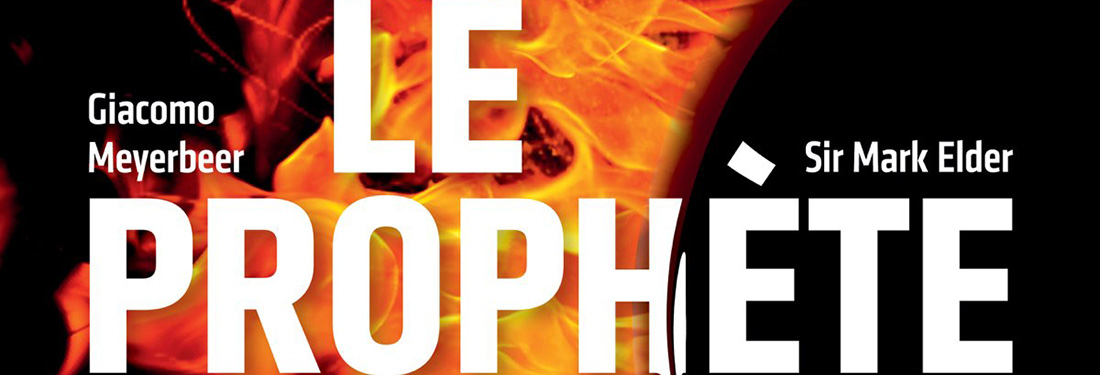
His sixth opera, Katya Kabanova, is perhaps his most passionately inspired composition. Janácek sets this story of an adulterous affair in a rural community on the Volga. Katya is unhappily married to the weak-willed merchant Tichon Kabanov, who is incapable of shielding his wife against the puritanical oppressions of his domineering mother, Kabanicha. When Tichon departs town on business, Katya’s foster sister Varvara encourages her to consummate her desire for the urbane Boris Grigorjevic. Although the pair become lovers, their fleeting moment of bliss is shattered when the tormented Katya publicly confesses her infidelity. Realizing that she has severed all tethers to a respectable life, Katya leaps to her death in the Volga during the opera’s harrowing finale.
While the narrative backbone of Katya Kabanova is restructured from Alexander Ostrovsky’s play The Storm, the music’s riveting emotional palette is sublimated onto the score from Janácek’s own unrequited love for Kamila Stösslová, a muse whose presence similarly hovers over the central characters of Bystrouška and Elina Makropulos. By refracting Ostrovsky’s social morality play through the prism of his engrossing heroine, Janá?ek crafts in Katya a drama that overwhelms in its tragic depiction of forbidden love.
In the century since its inaugural performances in Brno, Katya’s stock has risen to astonishing heights as one of the canon’s masterpieces. Beyond the borders of its native Czechia, the opera first secured its international footing in the United Kingdom, where it was championed by visionaries like Rafael Kubelik (who later led its American major company debut in San Francisco) and Sir Charles Mackerras. Mackerras, long venerated as the pre-eminent authority of Janácek’s music, not only helmed productions of Katya in the most prestigious venues, but also headlined two reference records that continue to proselytize listeners to this fascinating score.
Among the recent plethora of notable Katya’s, this new recording drawn from Sir Simon Rattle’s critically acclaimed concerts with the London Symphony Orchestra rises above the competition, notably for his probing insights into Janácek’s dramatics and for Amanda Majeski’s historically significant portrayal of the title role. Following his 2020 recording of The Cunning Little Vixen, Rattle’s new Katya marks the second installment in his collaboration with the LSO to further enrich the composer’s distinguished operatic discography.
Rattle’s affinity with Janácek’s music traces back to his formative years with the City of Birmingham Symphony and Philharmonia orchestras. His pre-Berlin recordings of the Sinfonietta, Missa Glagolitica, and Taras Bulba already evinced the young conductor’s ability to unleash swells of romantic exultation without skirting the autochthonous accents and idiosyncrasies innate to these scores. Four decades on, Rattle now commands a heightened acuity for limning a composer’s intentions and imbuing his readings with penetrating intensity–hallmarks necessary for navigating a score as darkly radiant as Katya Kabanova.
Under Rattle’s unerring vision, the London Symphony weaves a tapestry of dimension and color in depicting Katya’s variegated mental states. In contrast to the burnished legato that courses through Mackerras’ reading with the Vienna Philharmonic, Rattle’s virtuoso instrumentalists maintain a propulsive tension while underscoring Janácek’s piquant accents in this finely composed character study. It stands as a testament to Rattle’s mastery that details like Katya’s viola d’amore motifs or the thematic dualities present during Katya and Varja’s interactions and love scenes emerge with such clarity and individuality.
The orchestra and chorus’ vivid theatricality truly commands the forefront of this recording’s auditory landscape. The players’ instrumental accompaniment for instance acquires a ravishing gleam when the fluttering flutes and strings convey mysticism and wonder during Katya’s religious reminisces. When the character surrenders to Boris at the drama’s epicenter, rapture and sexual ecstasy abound in the ensemble’s soaring burgeon of sound. And how the orchestra grips one with a lacerating intensity when they realize the fatalistic passages that close the first act, as well as the turbulent elemental and psychological storms that push Katya towards her final apotheosis through suicide.
Rattle’s excellent cast likewise parallels his remarkable conception, with a handful of his singers representing the discography’s most charismatic proponents of Janácek’s characters. Amanda Majeski, who previously triumphed as Katya at the Royal Opera House and the Concertgebouw, repeats her haunted and impassioned heroine for this project. If Majeski’s interpretation doesn’t quite plumb the spine-tingling fragility of historic Katya’s like Elisabeth Söderström, her opulent colorations unearth greater contrasts between her enclaves of mental repose and her episodes of unhinged desperation.
Majeski’s radiant soprano delicately spins Katya’s ephemeral moments of happiness, evoking her yearning to fly free like a bird and her envisioning of angels amid her reveries of paradise. After Varvara invites Katya to the garden for the lovers’ trysts, Majeski inhabits the character’s pathological neuroses in her monologue “Vida! Nes?te?sti?! Tady je to nes?te?sti?!” with incredible specificity across her demanding vocal range. When we finally arrive at Katya’s hallucinatory denouement, “Ne! Nikdo tu neni?! Co as chuda?k de?la??,” the soprano commands attention with a cathartic finale replete with coruscating high As and B-flats as she hurtles towards her watery oblivion.
Rattle’s heroine is flanked by a cast that adeptly embodies their roles within Kalinovo’s dysfunctional community. Katya’s lover Boris Grigorjevi? is sung by Simon O’Neill, whose sturdy vocal constitution ably scales Janácek’s treacherous tenor writing. While O’Neill negotiates the music stylishly, his metallic timbre occasionally lacks the richness required to convey abandon and ardor. If O’Neill aligns with Majeski musically in their romantic confrontations, his Boris falls short in igniting the sparks to kindle the reticent Katya. Contrast this with Majeski’s earlier partnership with Pavel Cernoch’s Boris, both of whom exude an electrifying sexual chemistry that is uncomfortable palpable even from the distance of the ROH’s radio broadcast.
Marfa Ignatevna (Kabanicha), Katya’s imperious mother-in-law from hell, is brought to life with dramatic aplomb by the Swedish mezzo soprano Katarina Dalayman. While Kabanicha barely approaches the colossal dramatic onus carried by Janácek’s Kostelni?ka, her presence remains critical for disrupting Katya’s tenuous mental state. In these concerts, Dalayman’s incisive and flinty characterization echoes the stern reading immortalized by Nadezda Kniplová, mercilessly dominating Katya, Tichon and Dikoj with her steely declamations.
Magdalena Kozená, whose Varvara sounds as vital and effervescent as her portrayal at the Met from two decades prior, presents a most charming antipode to the titular heroine. With her exemplary command of Janácek’s linguistic and musical idiom, the charismatic Kozená elevates Varvara’s role in urging Katya to confront her human impulses. Varvara’s lover Kudrjas is sung excellently by the Czech tenor Ladislav Elgr (previously a solid Steva for Rattle), who convinces with his intelligent depiction of the town’s schoolteacher qua-philosopher. Kozená and Elgr’s young lovers delight with their seamless command of the music and text, offering a glimmer of hope amid Kalinovo’s claustrophobic environs.
Andrew Staples fields a more lyrical instrument than what is normally heard in Katya’s impotent husband Tichon, devoid of caricature and even mildly sympathetic in the face of his harridan of a mother. Pavlo Hunka, a late replacement for the originally scheduled Sir John Tomlinson, animates the stage with a belligerent old Dikoj that bursts with personality. His drunken interactions with Dalyaman’s scornful Kabanicha pierce this largely melancholic narrative with a glint of humor. Finally, Claire Barnett-Jones and Lukás Zeman offer rich tones and crisp characterizations in the minor roles of Glasa, Feklusa, and Kuligin.
This enterprise’s resounding successes ultimately return full circle to Rattle the dramatist. While Janácek’s operatic discography has never wanted for quality owing to Mackerras’ advocacy, Rattle’s nuanced artistry justifies and even necessitates the LSO’s ambitions to reimagine these captivating stage works. Indeed, with this hauntingly poignant Cunning Little Vixen and this transcendent Katya Kabanova behind him, one can only eagerly anticipate Rattle and the LSO’s upcoming release of their recently completed Jenufa and the remaining dramas that will culminate this musical odyssey.
Photos: Mark Allan
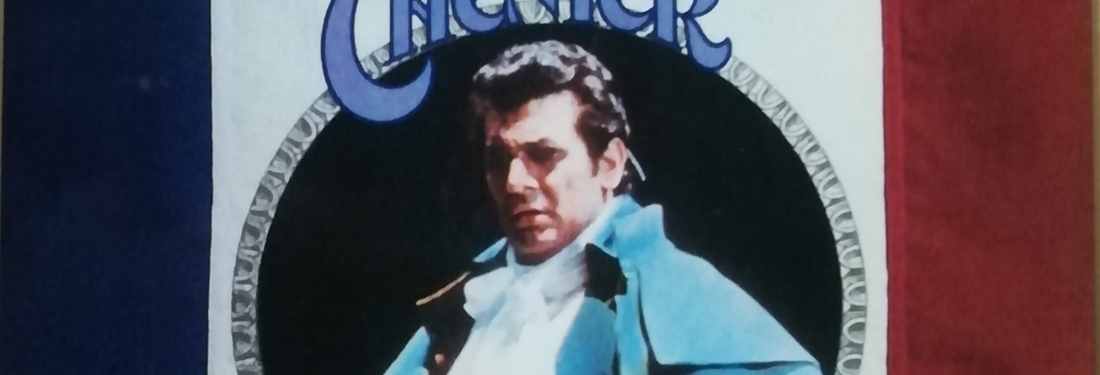
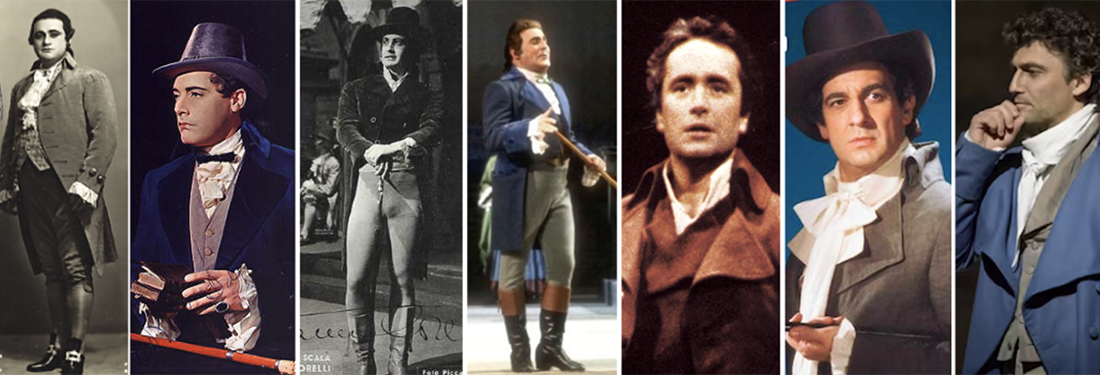
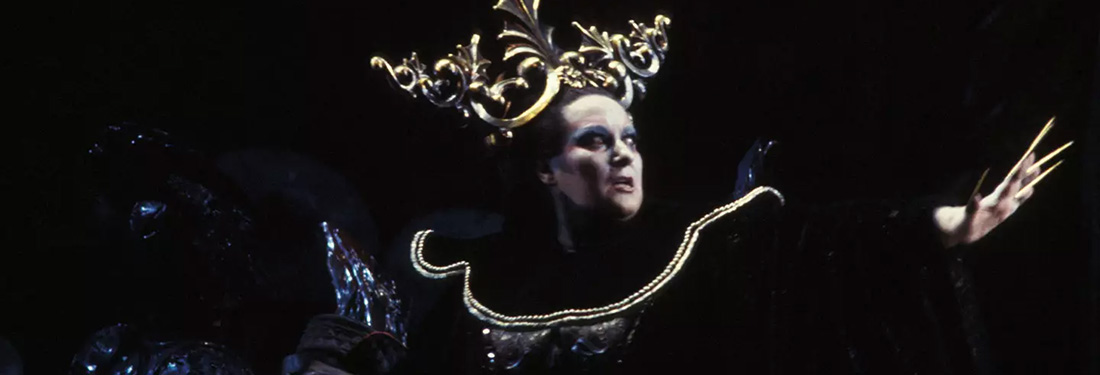
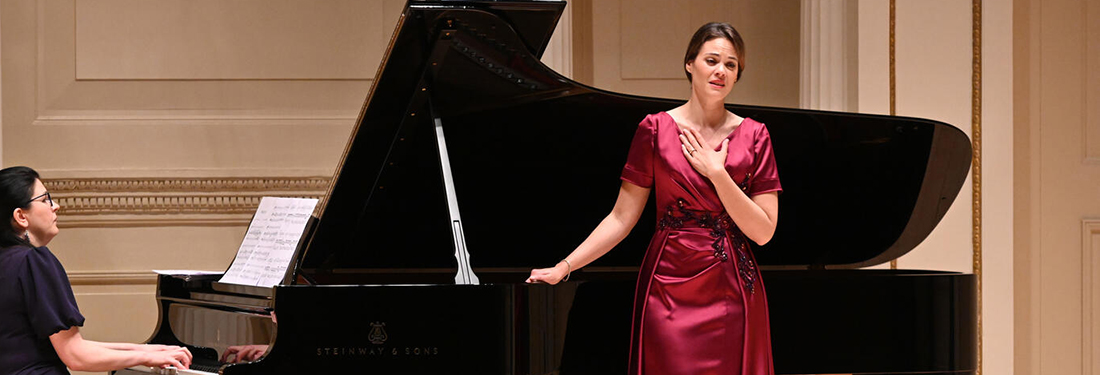
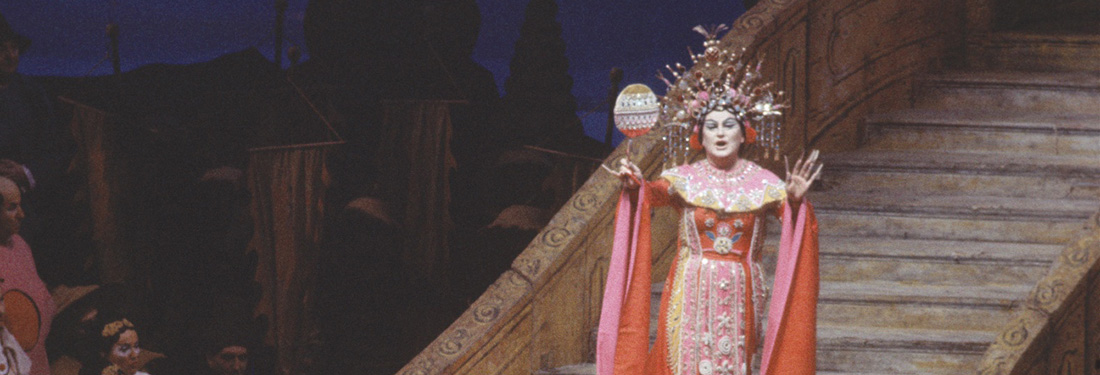
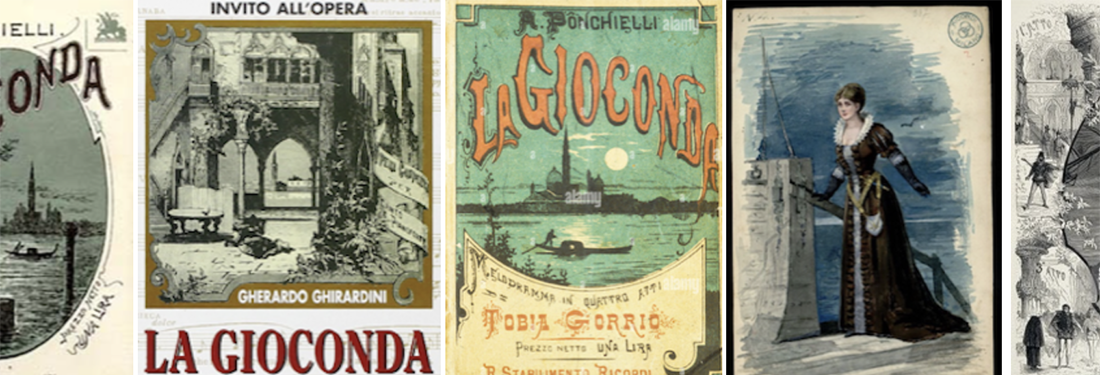
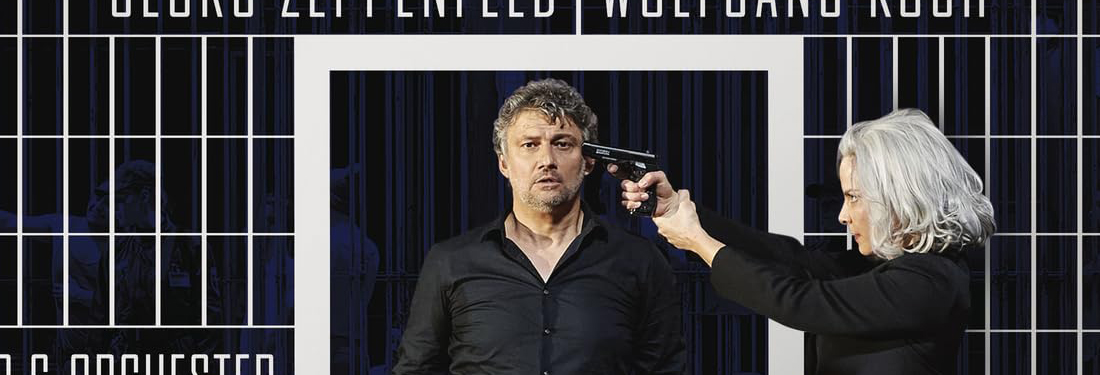
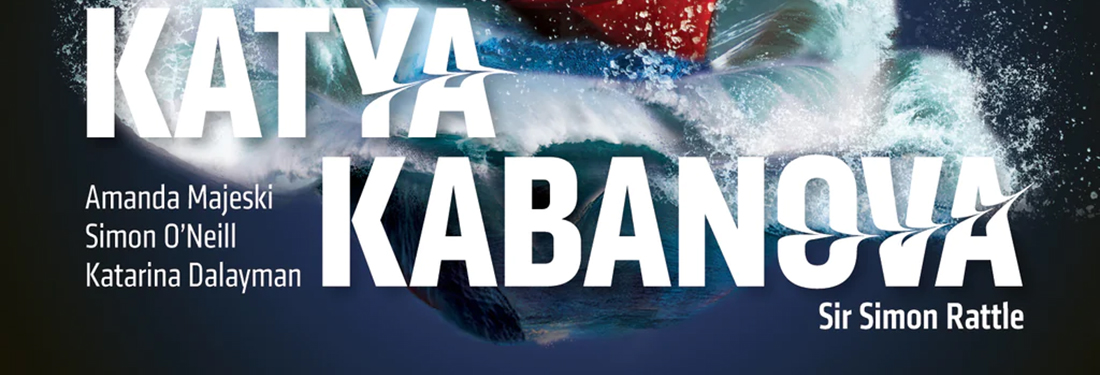

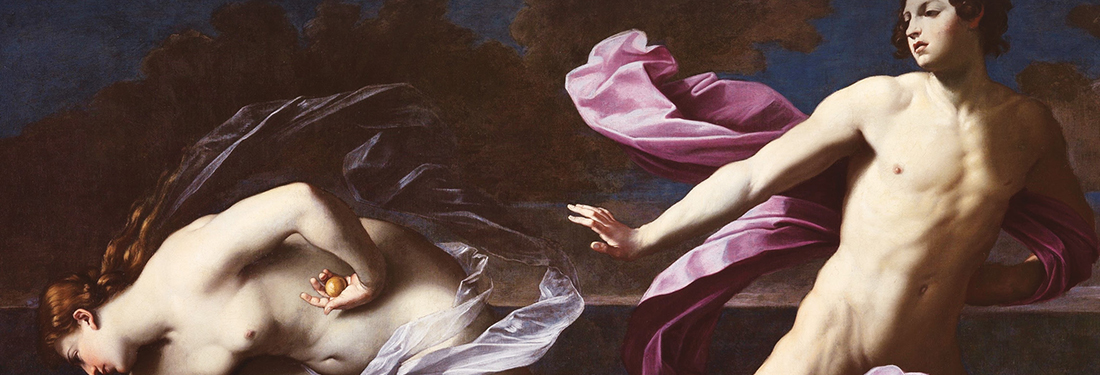
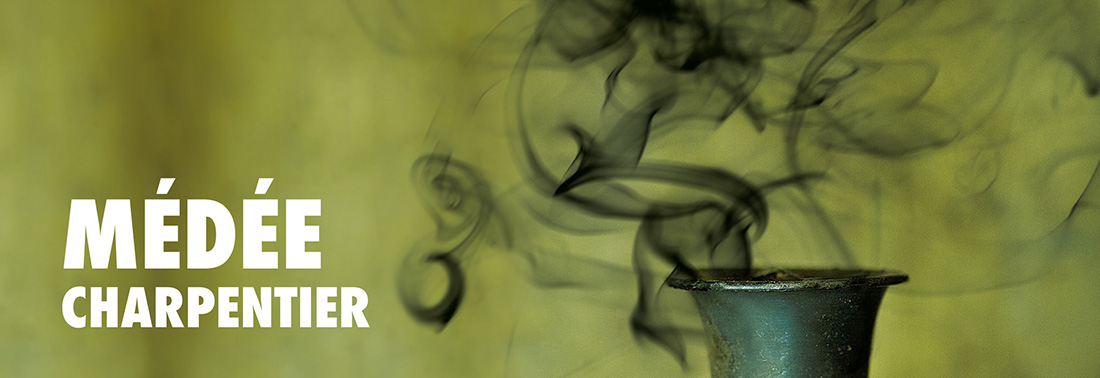
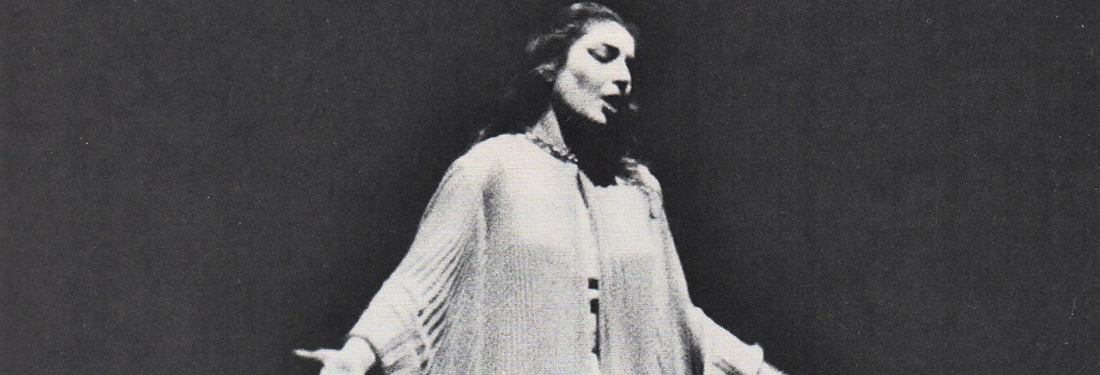
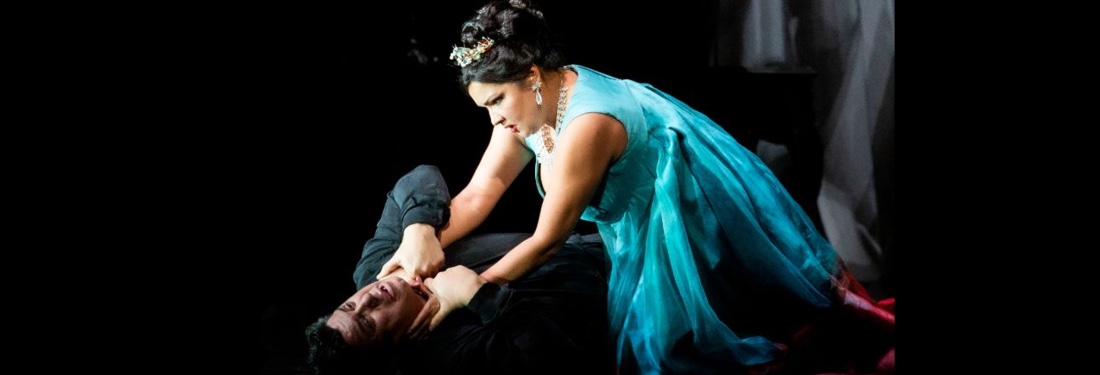

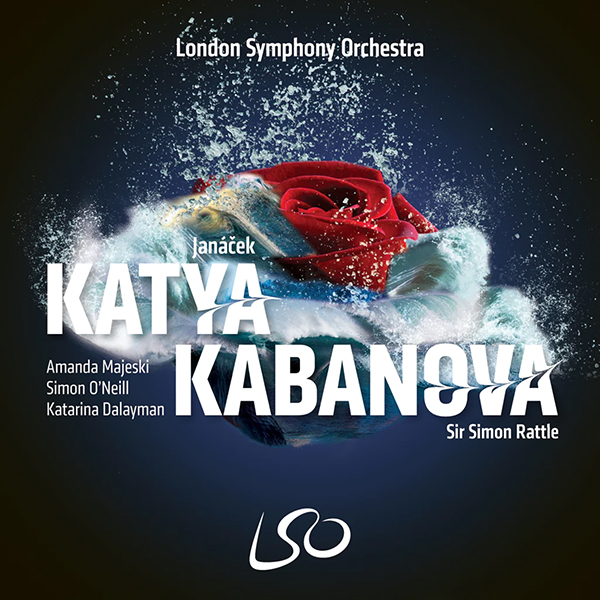
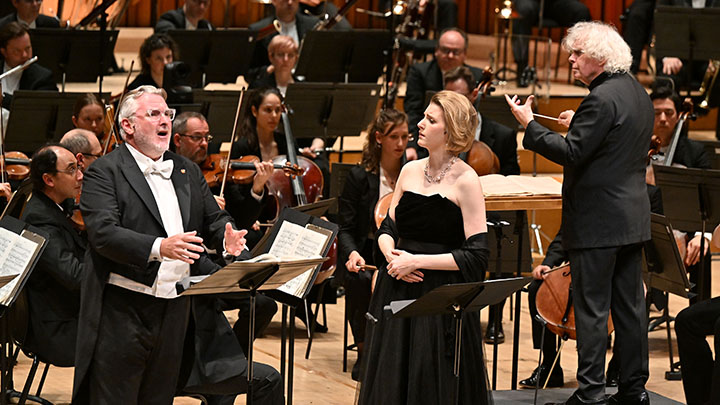
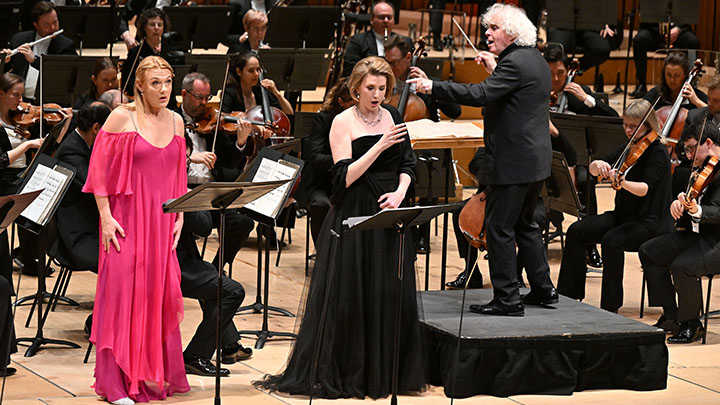






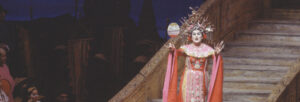
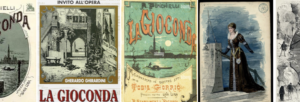



Comments